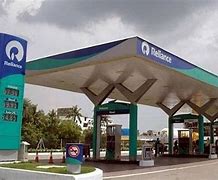Top 20 Petroleum Engineer Fresher Interview Questions
Table of Contents
Top 20 Petroleum Engineer Fresher Interview Questions
1. Can you explain what petroleum engineering is?
Example – “Petroleum engineering is a field of engineering that deals with the exploration, extraction, and production of hydrocarbons, primarily oil and natural gas. It involves designing and implementing technologies and processes to locate, drill, and recover these valuable resources from the earth’s subsurface.”
2. What are the main types of reservoirs in petroleum engineering?
Example – “There are three main types of reservoirs in petroleum engineering: conventional reservoirs, unconventional reservoirs, and offshore reservoirs.”
- Conventional reservoirs are the most common and consist of porous rocks containing oil and gas trapped in structural or stratigraphic traps.
- Unconventional reservoirs include shale gas, tight oil, and coalbed methane, which require advanced techniques like hydraulic fracturing for extraction.
- Offshore reservoirs are located beneath the ocean floor and require specialized equipment and engineering solutions for drilling and production.
3. Can you explain the difference between upstream, midstream, and downstream in the petroleum industry?
Example –
- “Upstream activities involve exploration and production, including drilling wells, reservoir analysis, and oil and gas extraction.
- Midstream activities focus on transportation and storage, such as pipelines, tank farms, and terminals.
- Downstream activities include refining, processing, and marketing of petroleum products like gasoline, diesel, and petrochemicals.”
4. What is the purpose of a drilling rig and how does it work?
Example – “A drilling rig is used to bore holes into the Earth’s subsurface to extract oil or natural gas. It typically consists of a derrick, drill pipe, drilling mud, and a drill bit. The drill bit rotates and penetrates the rock formations, while drilling mud is circulated to cool and lubricate the bit and carry cuttings to the surface.”
5. How do you assess the productivity of an oil or gas reservoir?
Example – “The productivity of a reservoir is assessed using various factors such as reservoir pressure, permeability, porosity, and the type of fluid contained in the reservoir. Engineers use well tests, production data, and reservoir simulation models to estimate the reservoir’s potential and optimize production strategies.”
6. What is enhanced oil recovery (EOR), and why is it important?
Example – “Enhanced oil recovery (EOR) is a set of techniques used to increase the amount of oil that can be extracted from a reservoir. This is crucial because conventional methods typically recover only a fraction of the oil in a reservoir. EOR methods can include injecting steam, chemicals, or gases into the reservoir to improve oil mobility and enhance production.”
7. What are the environmental challenges associated with the petroleum industry, and how can they be mitigated?
Example – “Environmental challenges in the petroleum industry include air and water pollution, habitat disruption, and greenhouse gas emissions. Mitigation strategies include implementing advanced technologies for emissions control, conducting environmental impact assessments, and investing in research for cleaner energy alternatives.”
8. Can you explain the concept of reservoir characterization?
Example – “Reservoir characterization involves the study and analysis of geological, geophysical, and engineering data to understand the properties and behavior of a reservoir. This information is essential for reservoir management and optimizing production strategies.”
9. What role does geology play in petroleum engineering?
Example – “Geology plays a vital role in petroleum engineering as it helps identify suitable locations for drilling, predict reservoir properties, and understand the geological history of the area. Geologists work closely with petroleum engineers to locate and evaluate potential oil and gas reservoirs.”
10. How do you ensure the safety of drilling operations, especially in challenging environments?
Example – “Safety in drilling operations is paramount. Engineers implement rigorous safety protocols, conduct risk assessments, and use advanced equipment to mitigate risks associated with high-pressure, high-temperature, and offshore drilling environments. Regular training and emergency response plans are also essential.”
11. What are the key factors that impact the economic viability of an oil or gas project?
Example – “Economic viability depends on factors like oil and gas prices, production costs, reservoir size, recovery efficiency, and regulatory compliance. Engineers and economists analyze these variables to determine the feasibility and profitability of a project.”
12. Can you explain the concept of well completion in petroleum engineering?
Example – “Well completion involves the installation of equipment and tools in a drilled well to prepare it for production. This includes setting casing and tubing, perforating the reservoir, and installing a production tree. The goal is to ensure safe and efficient oil or gas recovery.”
13. How do you handle oil and gas production decline in a mature field?
Example – “In mature fields, production naturally declines over time. Engineers employ various techniques such as reservoir management, infill drilling, and EOR methods to maintain or increase production rates. Maximizing recovery from these fields is crucial to the industry’s sustainability.”
14. What software tools are commonly used in petroleum engineering, and what are their functions?
Example – “Common software tools in petroleum engineering include reservoir simulation software (e.g., Eclipse), well design and analysis software (e.g., PETREL), and drilling optimization tools (e.g., DrillingInfo). These tools help engineers analyze reservoir behavior, design wells, and optimize drilling operations.”
15. How do you stay updated with the latest developments in the petroleum industry?
Example – “Staying updated in the petroleum industry is crucial. This can be achieved through industry publications, conferences, webinars, and professional organizations like the Society of Petroleum Engineers (SPE). Networking and continuous learning are essential for career advancement.”
16. Can you discuss the role of technology in the future of petroleum engineering?
Example – “Technology is transforming the petroleum industry with innovations like digital oilfields, automation, AI for reservoir management, and sustainable drilling practices. Engineers will increasingly rely on these technologies to improve efficiency, reduce environmental impact, and maximize resource recovery.”
17. How do you approach a problem-solving scenario in petroleum engineering?
Example – “Problem-solving in petroleum engineering involves gathering data, analyzing the situation, and applying engineering principles to find practical solutions. It often requires collaboration with multidisciplinary teams and adapting to dynamic field conditions.”
18. What soft skills are essential for a successful career in petroleum engineering?
Example – “Soft skills like communication, teamwork, adaptability, and leadership are crucial in petroleum engineering. Engineers often work in diverse teams and need to convey complex technical information effectively while adapting to changing project requirements.”
19. Can you describe a challenging project you’ve worked on and how you overcame the challenges?
Example – “This is an opportunity to showcase your experience. Discuss a project where you faced technical or logistical challenges and explain how you applied your engineering skills to overcome them. Highlight the positive outcomes and lessons learned.”
20. Where do you see the future of the petroleum industry in terms of sustainability and energy transition?
Example – “The future of the petroleum industry will involve a shift towards sustainability and energy transition. Engineers will play a vital role in developing cleaner energy technologies, reducing environmental impact, and optimizing the use of hydrocarbon resources in a responsible manner.”




